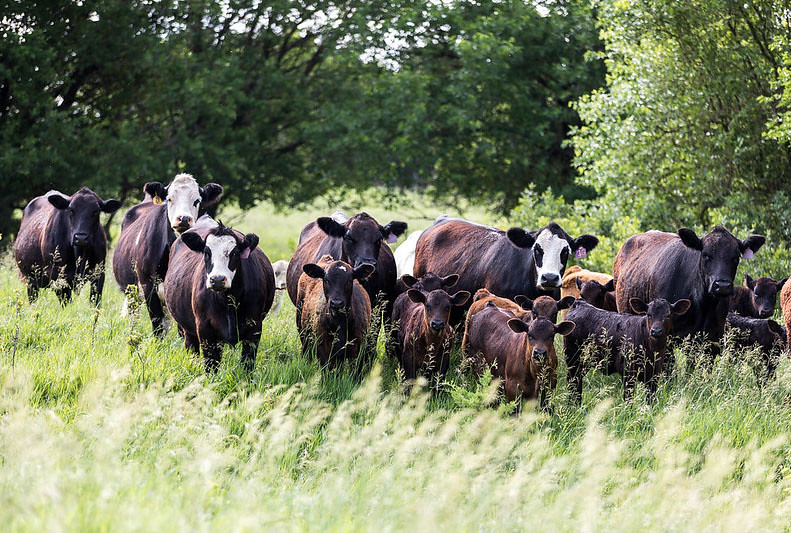Monitor for summer pneumonia in calves
Immunity can wane in the summer for spring-born calves.
August 2, 2022

Cattle producers may be surprised when their calves show signs of respiratory distress during the summer before they are weaned, said the veterinarians at the Kansas State University Beef Cattle Institute on a recent Cattle Chat podcast.
"Signs of pneumonia in calves include rapid breathing, laying down and being reluctant to rise, and having a high temperature," said veterinarian Bob Larson. "These calves may also stray behind the rest of the herd due to difficulty breathing."
He added that the most likely age for calves to be diagnosed with pneumonia is between 70-150 days of age, often in late summer for spring calving herds.
One of the reasons that they are susceptible to sickness is their waning immunity. "Newborn calves get immunity from the proteins in their mother's colostrum, but those proteins degrade over time, which is why some of the biggest calves can get sick," said veterinarian Brad White.
Veterinarian Brian Lubbers added: "These calves have passive immunity that is dropping, and their host immunity hasn't quite risen to the level of being protective."
The calves are not necessarily in a high exposure environment since they are still with their mothers, but because their immunity is declining, they are not as well protected against sickness, Larson said.
However, if newly weaned stocker calves are introduced on the ranch, they can raise the risk of sickness in the pre-weaned calves. So White encourages keeping these two populations separated for biosecurity.
"When people talk about a summertime pre-weaning pneumonia, the respiratory sickness is primarily associated with viral infections," Lubbers said.
White said summer pneumonia is not common and is oftentimes survivable with the right treatment. "About 1 in 5 herds will experience pre-weaning pneumonia, and within those herds up to 15% of the calves will be infected," he said.
One prevention strategy is to vaccinate the calves against bovine respiratory disease around three months of age, but that isn't a guarantee that they won't get sick, Larson said.
"Young animals don't typically respond as well to vaccines as ones that are seven months of age or older," Larson said.
As with any animal health challenge Larson urged producers to "consult your veterinarian to determine the best treatment and prevention plans for your herd."
Source: Kansas State University Research and Extension, which is solely responsible for the information provided, and wholly owns the information. Informa Business Media and all its subsidiaries are not responsible for any of the content contained in this information asset.
You May Also Like



